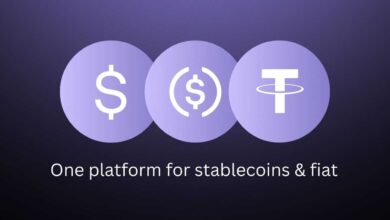China’s JDcom Rides GENIUS Act Wave with Bold Global Stablecoin Push

JD.com is preparing to apply for stablecoin licenses across multiple countries as part of a broader strategy to improve the efficiency and cost-effectiveness of international payments, founder and chairman Richard Liu announced Tuesday.
Speaking at a press conference in Beijing, Liu shared that the Chinese e-commerce giant intends to roll out stablecoin services globally—beginning with business-to-business transactions and later expanding to consumer use.
“We aim to apply for our stablecoin license in all major sovereign currency countries in the world,” Liu said. “Our vision is that one day, people around the world will be able to use JD’s local coins for global payments.”
According to Liu, stablecoins could help reduce settlement times to under 10 seconds and slash transaction costs by as much as 90%.
The effort is part of JD.com’s strategy to rejuvenate its business following what Liu referred to as “five lost years” marked by stagnation and lack of innovation. Alongside the stablecoin initiative, JD is also branching into new sectors such as food delivery and tourism.
The company’s move comes amid growing international interest in stablecoins. On the same day, the U.S. Senate passed the GENIUS Act—a pivotal bill that creates a regulatory structure for the issuance and trading of stablecoins. The legislation passed with bipartisan support in a 68-30 vote and has already attracted attention from major players like Amazon, Walmart, and Citigroup.
However, the expansion of stablecoins has drawn criticism, especially from lawmakers concerned about consumer data privacy and corporate overreach. Senator Elizabeth Warren, a vocal critic of the GENIUS Act, warned that it could pave the way for large tech companies to create their own surveillance-driven digital currencies.
Some skeptics also point to the lack of interest yield on stablecoin holdings as a downside for users, even though companies might earn interest on customer funds. Coatue Management founder Philippe Laffont has suggested that stablecoin issuers should pass on spot interest rates to holders through standardized contracts.
JD.com has yet to outline a specific rollout timeline or indicate which jurisdictions it will target first for licensing. The company described the effort as an “overseas project,” suggesting the stablecoin will not launch domestically in China.





